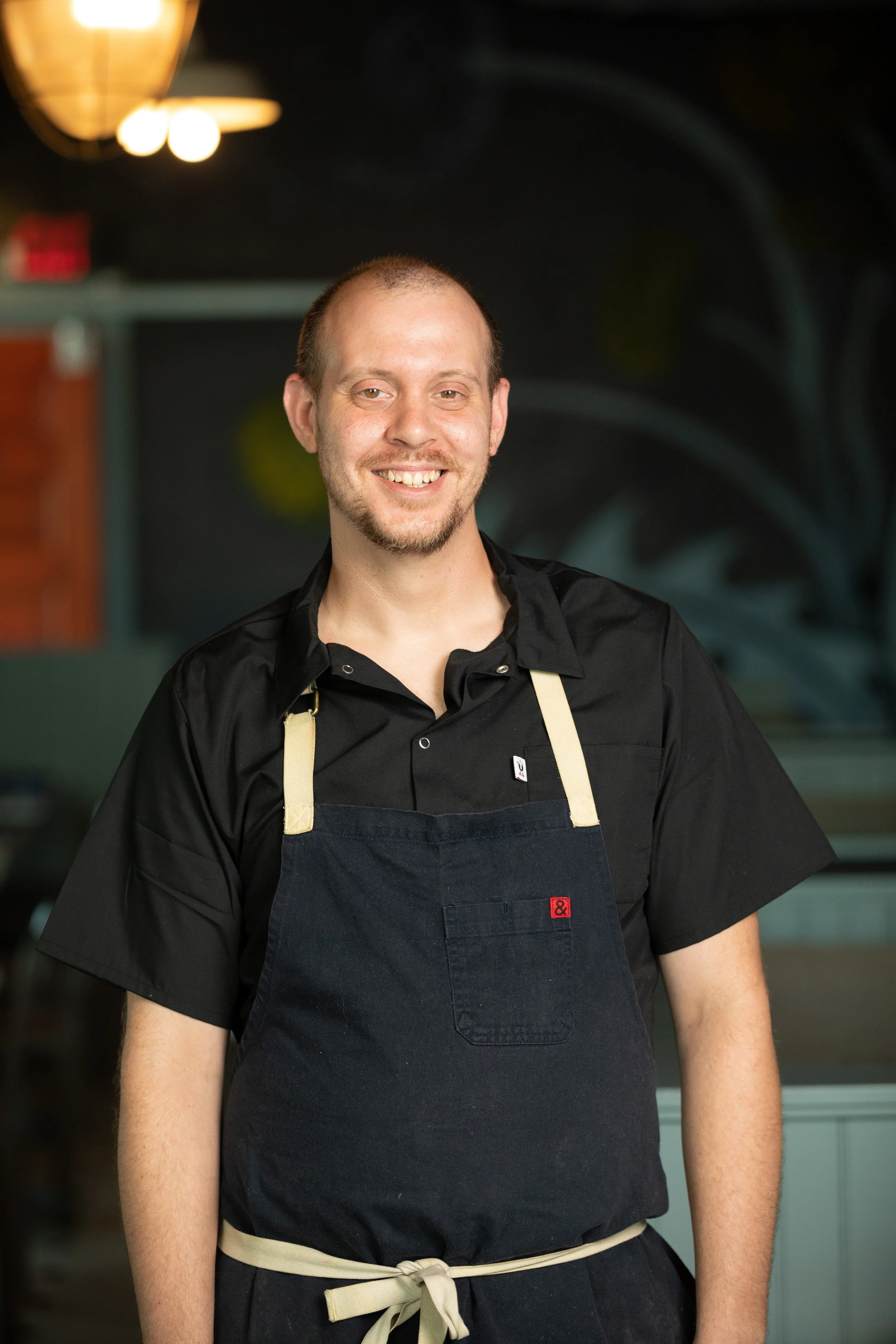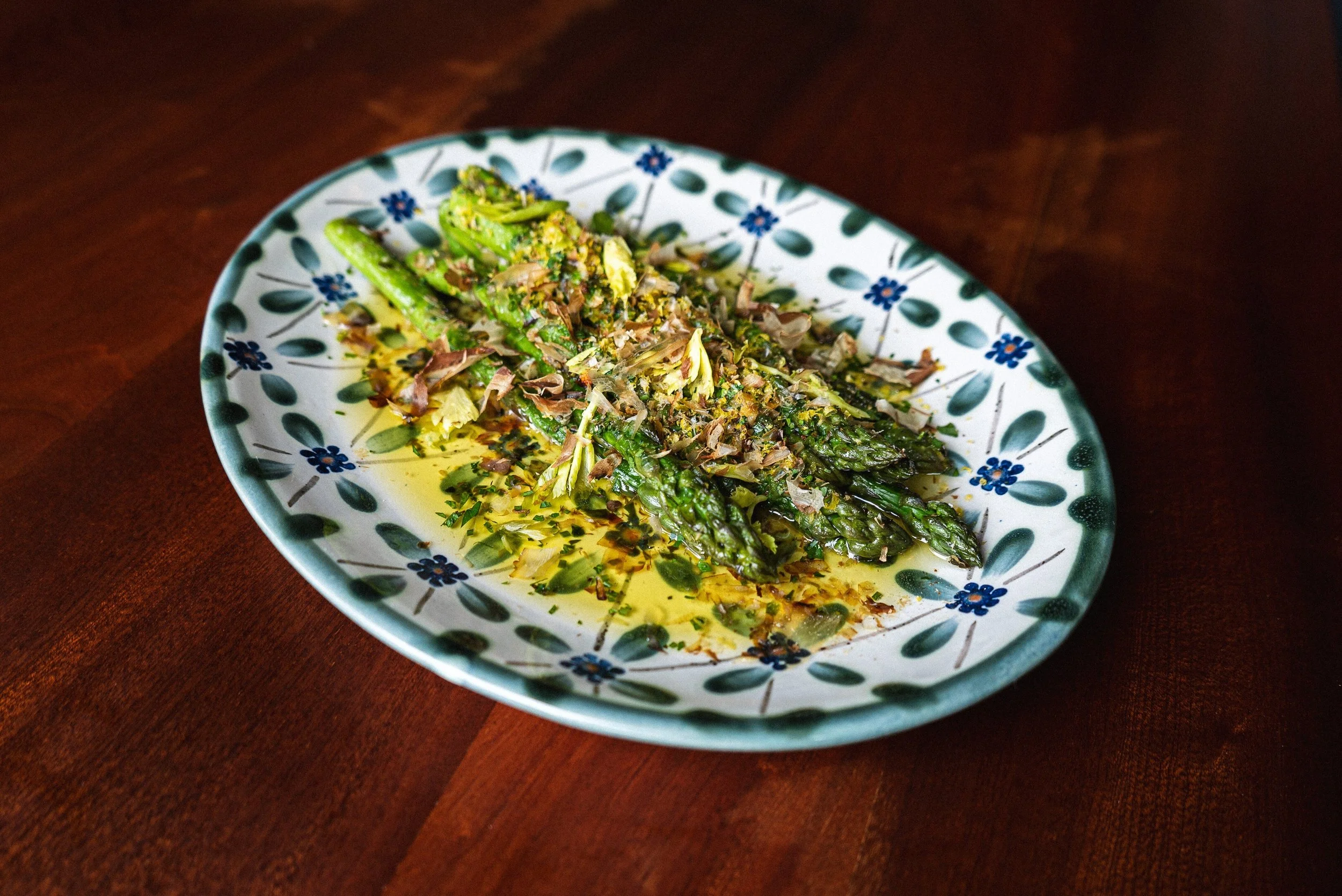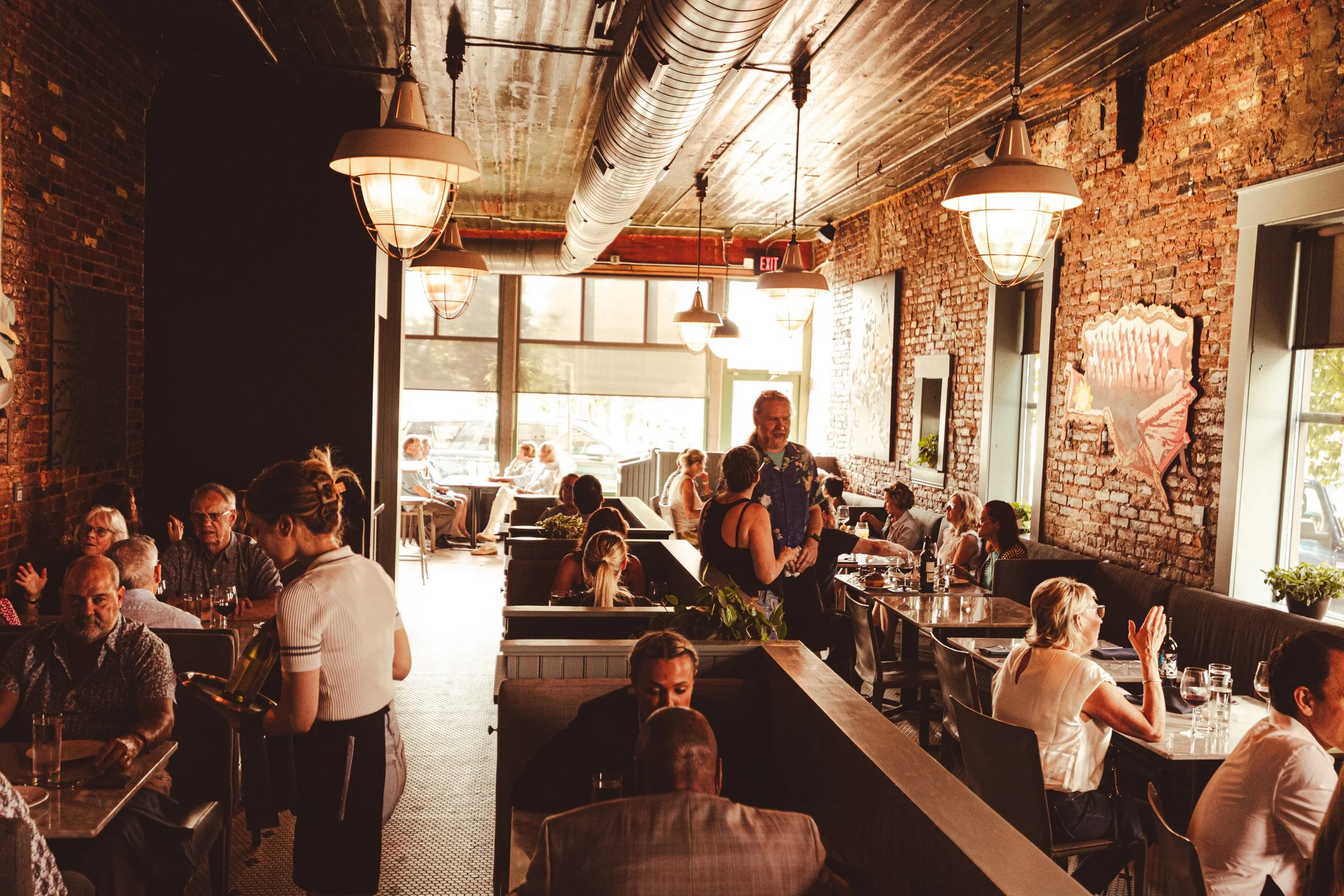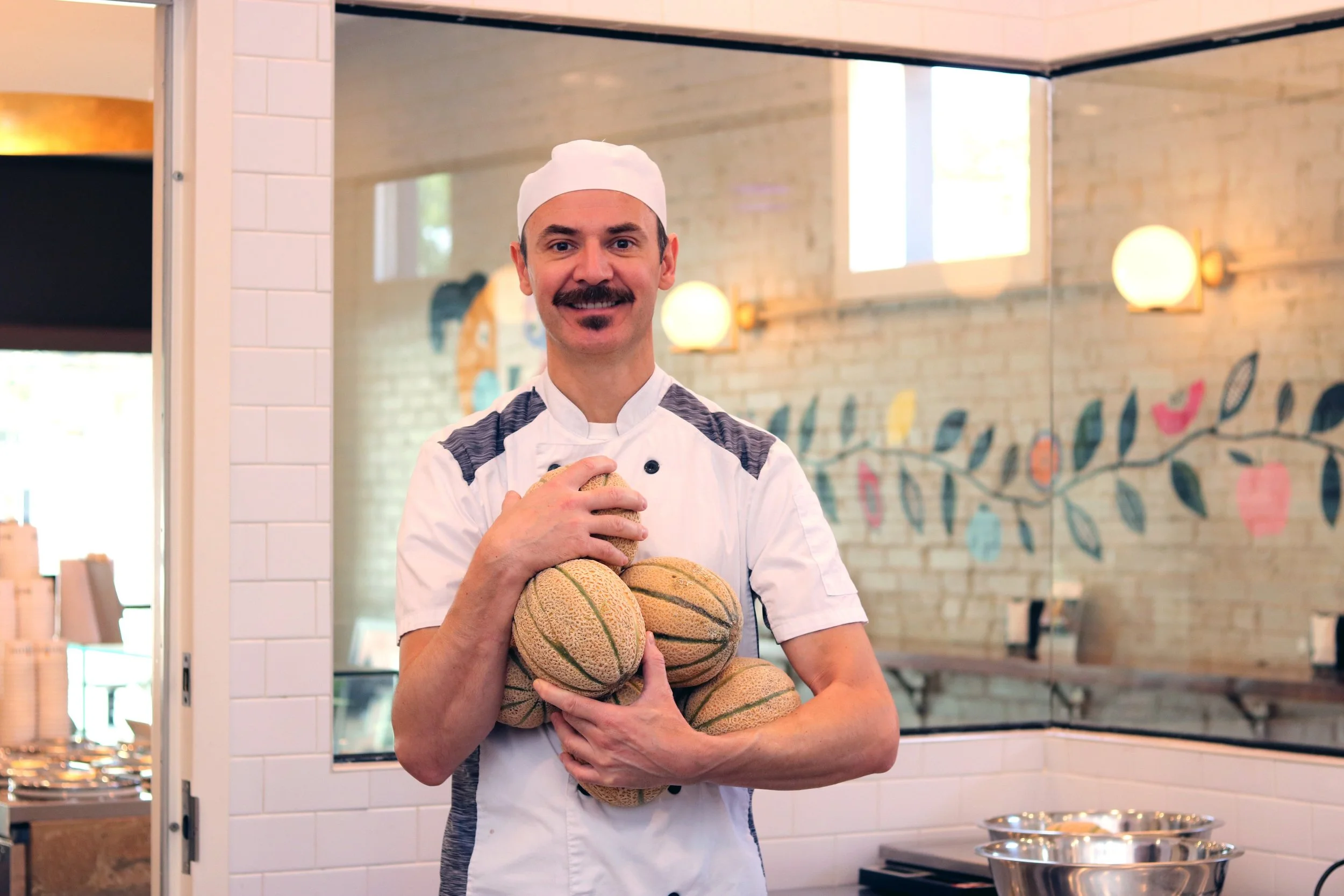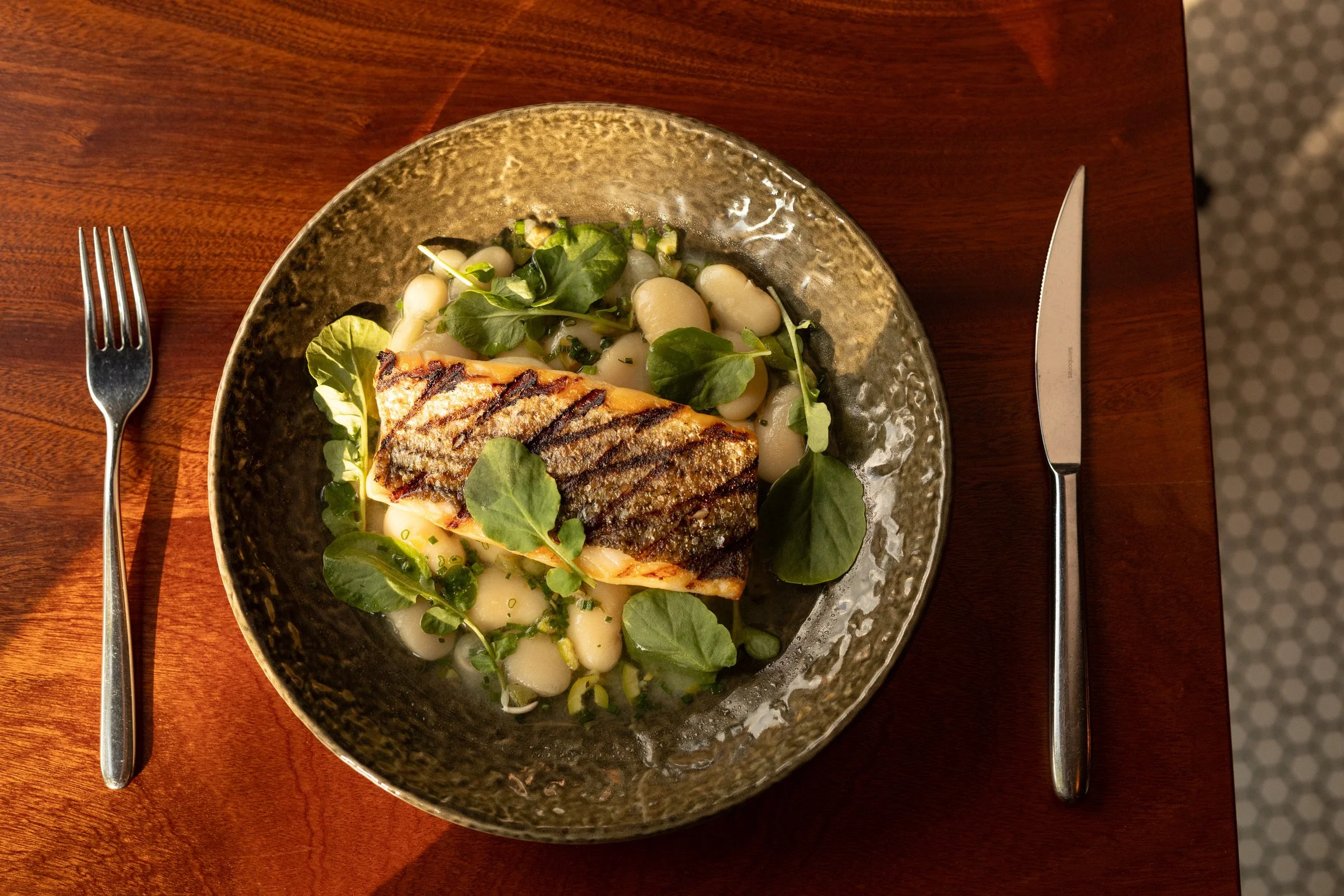
THE SOUTH | CHEF PROFILES
Why Chef Matt Johnson’s New Restaurant, Decade, Is a Love Letter to Louisville
DECADE | MAP | INSTAGRAM
By Eric Barton | Nov. 19, 2025
AUTHOR BIO: Eric Barton is editor of The Adventurist and a freelance journalist who has reviewed restaurants for more than two decades. Email him here.
It begins with a raw, rough chunk of cherry wood, cinched into an ancient piece of machinery handed down by his wife’s grandfather. It begins, and Matt Johnson comes in close with a chisel. Sawdust sprays, the wood becomes smooth, and after trims and sanding and a final polish, it takes on a new life, the grains now artwork, the wood soft when it fills his palm, a Japanese-style knife handle, finished and ready.
It’s not unlike the journey chef Matt Johnson has been on all these years, a Louisville native who’s worked away the rough corners, polished his approach to kitchens, and now finally has a restaurant that’s his.
The opening of Decade in Louisville’s Butchertown neighborhood is the latest, and most defining, chapter in Johnson’s career. It’s a restaurant forged in the ashes of the beloved Decca and built alongside his partners, Andy Myers and Chad Sheffield. Yet, Decade isn't just a restart; it is the culmination of a life spent absorbing lessons, from the simplest home-cooked meal to the most rigorous fine-dining environments in Kentucky. Johnson is now one of the city's essential culinary storytellers, finally writing his own narrative.
Matt Johnson
Johnson’s connection to Louisville is foundational, even if his childhood was marked by frequent moves between his divorced parents. The constant, however, was food. “My mom was a great cook and my dad was a cook in the Army before I was born,” Johnson recalls. His first culinary obsession was his mother’s spaghetti and meat sauce, a dish that always featured "mushrooms and extra garlic." The importance of the meal was cemented by his Catholic upbringing, where a “big Sunday Supper was always important.” Later, he learned that his own family history was entwined with local culinary legends: his paternal grandmother owned a restaurant on South 3rd Street, rumored to have been recommended to Loretta Lynn by Johnny Cash.
Right out of high school, Johnson dove into the deep end, taking a job at the Kentucky International Convention Center. There, he was exposed to massive-scale cooking, often serving between 2 and 7,000 people. The experience taught him discipline and organization. Johnson described the operation as “a feat of engineering,” a mix of planning and efficiency, skills that proved vital when he later moved into fine dining.
Asparagus in a beurre blanc
The next major pivot came when Johnson joined Proof on Main as a line cook in 2006. He describes the move as entering a “whole new world of restaurants,” which he credits with showing Louisville the true creative potential of its dining scene. “I remember before Proof, I would hear ‘you can’t do that kind of food in Louisville,’ and now I feel like the sky's the limit.”
Beets with pickled blueberries
Decade
Over the course of eight years, Johnson rose to sous chef and worked under a string of influential executive chefs. Brian Riddle taught him organizational skills, while Michael Paley developed his palate, tasting every dish he made for two weeks to "hone in on my ability to taste salt and acid acutely.” Levon Wallace taught him to think unconventionally and always find a way to say yes to a request. Mike Wajda instilled a love for butchery and whole-animal cookery. Finally, Jonathan Searle helped him round out his managerial approach, teaching him to be a compassionate leader.
When Decca closed in 2022, Johnson, Myers, and Sheffield banded together, seizing the opportunity to renovate the old Butchertown Grocery space. Decade is the venue where Johnson applies the lessons learned from those years of intense mentorship, a collaborative space focused on culinary tradition and execution.
Roast chicken with black lentils and pan jus
Today, he says he relishes in teaching young talent. His key advice: “The only way to grow and learn is to make mistakes and learn from them.” More than recipes, he hopes they gain an appreciation for the love of the craft and the ability to think critically about every move. He stresses the constant need to “think about the process,” clarifying that once a person starts breaking down the steps—whether tying shoes, cooking a steak, or sweeping the floor—everything becomes easier to understand and execute.
Johnson’s journey through Louisville’s kitchens has delivered him from a place on the line, slicing a thousand pepper curls at the convention center, butchering whole animals at Proof, and sending out ten thousand dishes from the expo line at restaurants all over the city. He’s taken the raw chunk of wood and turned it into something practical, useful, and better than it was.


